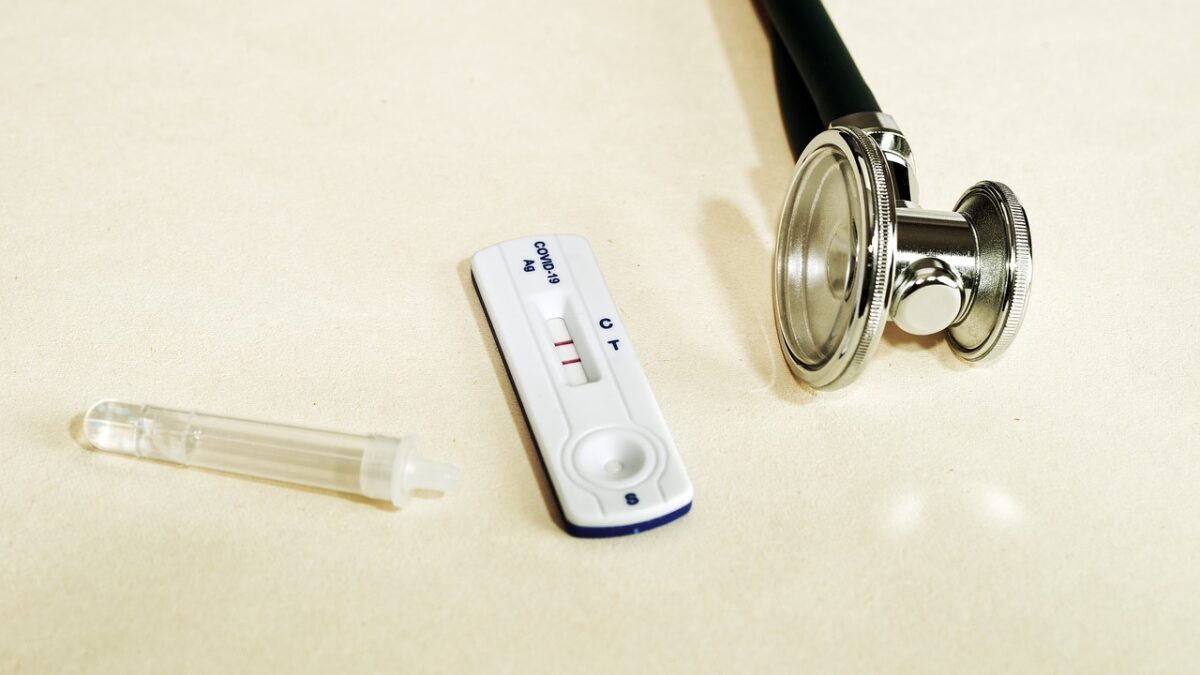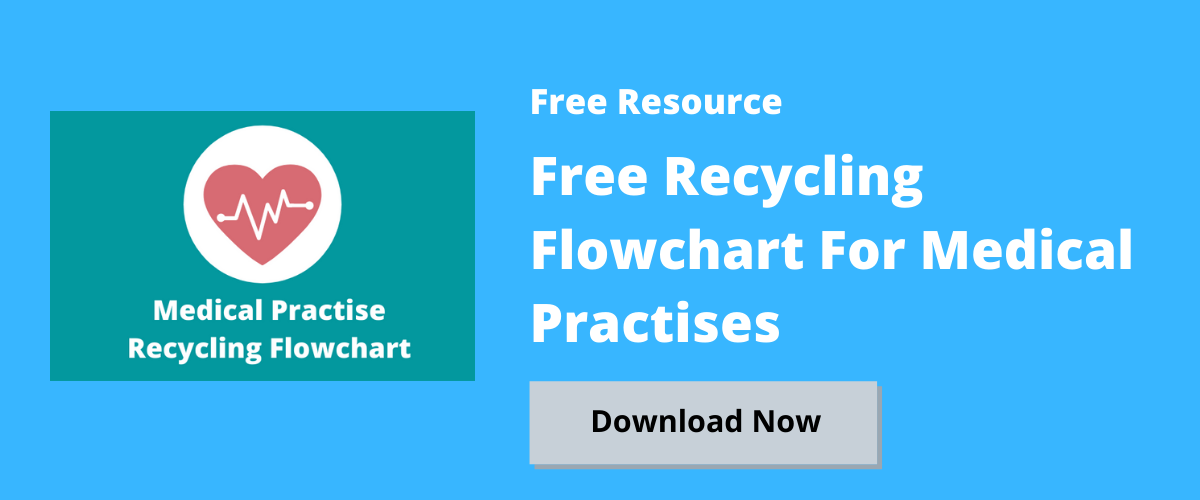
Ensuring The Disposal Of Rapid Antigen Test Kits ⚕️
Disposal Of Rapid Antigen Test Kits ⚕️: Nowadays, Rapid Antigen Test Kits have grown in popularity for fulfilling quick on-site tests that can signal either the presence or absence of COVID-19 antigens. In this blog, we talk about how you can dispose of them properly if you intend to use or have already used them.
>Download Now: Free PDF Business Owners Guide To Medical Waste Bin Services
Fast forward to today, you will still see numerous amounts of people from all over the world contracting the virus and suffering its symptoms. Unfortunately, nothing much has changed since the beginning. But at the very least, we can check out our status and see if we contracted the virus or not. We can do so by the use of Rapid Antigen Test (RAT) kits.
How do we use these kits? Are they hard or fairly easy to use? More importantly, how does the disposal of Rapid Antigen Test kits even happen? We will discuss all of that in this blog.
>Download Now: A Recycling Infographic For Medical Practises
A bit about Waster
Before we continue our topic on the disposal of Rapid Antigen Test kits, let me share more information about Waster.
We here at Waster provide you with innovative solutions for your and your business’s waste management and recycling needs. Additionally, we provide flexible, 30-day contracts instead of the typical lock-in contracts, which proves to be better.
Why you should book our services
Aside from the disposal of Rapid Antigen Test kits or other medical waste needs, Waster can also help with everything related to waste and recycling.
All across Australia, you can find all sorts of waste management and recycling services providers. “How can I ensure that Waster, the waste management company with good reviews, will fulfil their services with efficiency?” Well, you will have to book and find out about our services!
Why should you pick Waster? Here are some reasons:
- You pay exactly what you asked for – and not a dollar more! For your waste management and recycling needs for your waste, avail of our flexible, 30-day contracts instead of those long, unproductive, and hidden fee-containing lock-in contracts.
- Designed for small and medium businesses – we help you reduce costs while boosting recycling. That’s a win-win situation!
- On-time and reliable – we provide fully accredited logistics and facility operators. By saying so, we ensure the safety and efficiency of our services.
Waster enables many Australian businesses to access the cheapest bin collection, removal and disposal prices there are in the Australian garbage market. A statement from our very own states that it “requires no lock-in contracts, no unjustified rate increases and no hidden costs“ and operates in all metro regions throughout Australia.
Click on the blue button to learn more.
Now, onto the disposal of Rapid Antigen Test kits!
READ: RecycleSmart Solutions ♻️
Disposal of Rapid Antigen Test Kits: what to do
You just have to remember some few pointers if you are going to dispose of your Rapid Antigen Kit, according to the NSW and South Australian Government (which is the standard in any state, really):
First, store the test kit in a place where it is safe, dry and cool. It will usually have instructions that you should follow.
Next, follow the disposal instructions provided with the Rapid Antigen Test kits. Some might come with a plastic bag. If it does come with a plastic bag, place the contents there including with the swab for proper disposal. Afterwards, you can now dispose of them in your household rubbish/general waste bin.
Take note not to recycle the test kits.
What if you were not provided with a bag? Then, you can go ahead and place the items used from the test into a small, sealable plastic bag. Put this bag into another another bag and dispose of it in the household rubbish/general waste bin.
Make sure to wash your hands properly after completing the test and properly disposing of the Rapid Antigen Test kit contents.
Disposal of Rapid Antigen Test kits: how do they work?
Now, how do they really work? Here is how (instructions from direct365):
- First, a sample – called a swab sample – is taken from either the nose or the mouth. It can also be taken from both if preferred.
- The healthcare worker handling the process then mixes it with a buffer solution which can release and break up the virus fragments.
- The mentioned virus fragments will then move along the strip to reach a set of labelled antibodies. Once both of the virus fragments and antibodies combine, they then enter what we call a ‘test zone’.
- Wait for a bit (around 5 minutes or so) and a coloured line will appear in the control zone. This indicates whether the test has worked or not.
- Check for colours. If a coloured band appears in the test zone, then this only means one thing: you tested positive and have the virus present in you.
With all of these said, can we really trust the Rapid Antigen Test kit and consider ourselves positive if it says so?
The answer to that is not yet. If you get a positive result, then you should first go to a centre that can also test you to confirm. Although the kits are good to use to determine if one is positive or not, it is still not as entirely accurate as the results you can get from a lab.
Tips to remember when disposing of Rapid Antigen Test kits
Before thinking of the disposal of Rapid Antigen Test kits, one must first think about how to collect and store them properly. Get them out of reach of anyone for everyone’s safety.
This is especially important because these kits are mostly made of ‘biowaste‘ which can bring about harm to humans and animals alike. Remember these:
- We can consider the liquids, containers and other items used in testing as hazardous waste. As such, we should separate them from other wastes located around the area and not dispose of them in the general waste or rubbish bin.
- As for the box and paper instructions of the kit, we can put them instead in the general waste/household rubbish waste (recycling for the paper instructions) stream.
- Prevent them from leaking at all times. Store them appropriately in a sealed, clear biohazard container especially designed to prevent leaks and spills from happening.
- To ensure the proper disposal of Rapid Antigen Test kits, never compact them mechanically. Also, you should never treat or process these waste mechanically, as well.
- These wastes should only be handled by professionals.
- In case spills and leaks indeed happen, deal with it accordingly. Clean everything up immediately and put the wastes in their respective containers.

Disposal of Rapid Antigen Test kits: conclusion
In everything that we use, we should dispose of properly. The same goes true for Rapid Antigen Test kits. We have to dispose of them properly so that they will not cause harm to living things.
Contact Waster today for your waste and recycling needs!
Are you a business in need of waste and recycling bin services?
If so, please call 1300 WASTER (1300 927 837). You can also email us at enquiries@waster.com.au if you have any further questions. Find the best deals in terms of waste and recycling pricing and services!
7 Comments
Leave a Reply Cancel reply

Product categories
Most Popular Posts
-
Commercial Waste Management Services: Reduce Waste Collection Costs! 🚍
-
Medical Waste Disposal: Everything You Need To Find Out In 2024! 💉
-
Rubbish Removal Sydney 2024: Better Bin Collections For Business ✅
-
Clinical Waste Disposal 2024: What To Know About Business Clinical Waste ⚕️
-
Secure Document Destruction 2024: All About Security Bins Shredding 🔒
-
Free Cardboard Recycling 2024: Can I Get Free Cardboard Collection? 📦
-
Confidential Paper Disposal Bins 2024: What You Need To Know About Shredding! 🔒
-
Recycling Bins Australia 2024: Recycling Can Boost Your Profits! ♲
-
Commercial Wheelie Bin Collection: What Businesses Need To Know In 2024 🗑️
-
Commingled Recycling 2024: Why Commingled Bin Is Key To Recycling 🍾















did you actually inform us how to dispose of them?
No they didn’t.T
Yes they said to put in general waste bin.
The recycling of these kits should in all respects not become part of land fill in a plastic bag
The kit are a type of hospital waste, I have heard that pharmacies take this type of waste?
This information of recycle should be spread like the virus itself,.
unfortunately – in the vast majority of cases, clinical waste is not recycled in Australia – it is either autoclaved then landfilled – or incinerated
Agreed Karen.
Something needs to be done about the huge influx of plastic antigen tests going into landfill. I’ve been searching all morning for a solution but so far nothing. Surely something can be done.
it is incredibly annoying. The NSW EPA for example – specifically says they can not be recycled. They of course can be recycled – as plastic etc